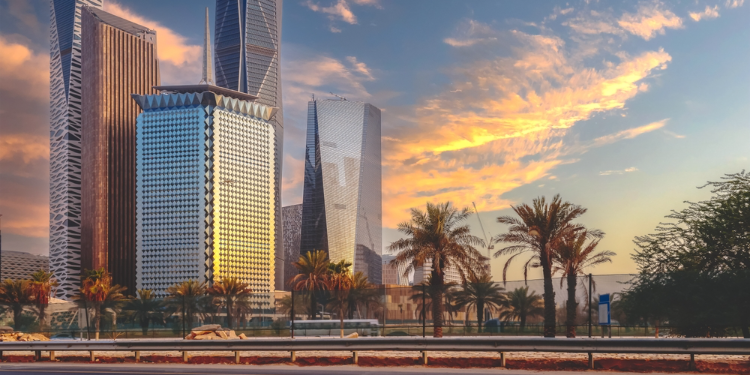
Multiple Gulf countries are currently replacing expats with locals in many jobs. Saudi Arabia's situation looks paradoxical because the kingdom is both creating new measures to attract expats and continuing the “Saudization" (nationalization) of the local workforce. How are these two seemingly diametrically opposed policies working together?
Vision 2030 aims to bolster non-oil economic sectors and reduce local unemployment
Vision 2030 is Saudi Arabia's overarching strategic framework until the end of this decade. Its main goal is to decrease the kingdom's over-reliance on oil and diversify its economy. More is being invested in strengthening the tech, non-oil trade, banking, health, infrastructure and tourism sectors. A less conservative image of the country in the eyes of foreigners, including those of expats, is also being encouraged.
Another component of Vision 2030 is Nitaqat – or Saudization. Expat workers make up 30% of the kingdom's population of around 35 million, while local citizens' employment rates lag behind. This is especially the case for women's employment and for jobs in the private sector. When a previous stage of Nitaqat was unveiled in 2016, the Labour Minister of the time, Mufrej Al-Haqbani, revealed that they were aiming to bring local unemployment down to under 7% and to increase women's participation in the workforce by at least 7% by 2030.
The initial goal was to make Saudi women occupy at least 30% of jobs by 2030, but this goal has already been surpassed, with local women making up 33.6% of the workforce in March 2022. Having women in the workforce also improves the international image of this kingdom which has been notorious for its track record of women's rights. Saudi Arabia's Central Department of Statistics shows that the overall unemployment rate among Saudis has also already dropped below 7% – it was 5.80% in the second quarter of 2022.
Saudi Arabia is being more selective in accepting expats – not turning them away altogether
The conundrum is: why is Saudi Arabia still attracting expats if it is prioritizing giving jobs to locals? The kingdom did predictably lose expats at the height of the pandemic, that is, in 2020 and 2021. The Middle East Monitor reports that it lost 8.6% of its expats, especially male workers. But in 2022, the number of new expats bounced right back.
Alarabiya News reports that, according to preliminary data from the Saudi General Organization for Social Insurance, there has been a surge in newcomers in the third quarter of 2022. The number of expats registering with the kingdom's social insurance scheme increased sixfold between the 2nd quarter (∼200,000) and the 3rd quarter (∼1.2 million). WIO News even reports that it was the most popular destination in the Middle East for Indian expats in 2022. How come it has increased so much if it's now harder to get a job as an expat in Saudi Arabia?
Nilaqat has indeed made it more difficult in some ways for expats to get employed. Multiple jobs can now employ only a capped number of expats. For example, as reported by the firm Fragomen, all photography and advertising agencies in the region of Jazan, which borders the Red Sea, must have 70% Saudi employees by mid-2023. Some expats, notably skilled manual workers (electricians, plumbers, etc.) from India, now have to pass selective tests to obtain their work visas.
However, workforce nationalization in Saudi Arabia remains less intense than in other Gulf countries like Kuwait or Oman. And more importantly, Saudi Arabia is also counterbalancing workforce nationalization with new measures to attract big businesses and the most high-skilled or talented expats.
In a way, the kingdom isn't turning expats away but simply being pickier about whom they accept. The new practical tests that skilled Indian manual workers have to undergo, for one, show that they want to select the very best tradespeople. Indeed, at Davos in 2022, the Saudi Minister of Investment, Khalid Al-Falih, said that “the number of expatriates coming to the Kingdom will increase in terms of quality as our economy gets more sophisticated and more diversified” (source: Zawya).
In a memo on Al-Monitor, the market research analyst Samuel Wendel analyzes that Saudi Arabia is strategically targeting the big businesses and tech/finance professionals who historically have tended to be drawn to the UAE. For one, the kingdom is now requiring any multinational which wants Saudi government contracts from 2024 onwards to relocate their regional headquarter to their country by the end of this year. The regional Middle East headquarters of multinationals have usually been in Abu Dhabi or Dubai. But 44 have already shifted their regional HQs to Riyadh or Jeddah over 2021 and 2022. They include big names like Deloitte, Unilever and Siemens.
These companies have not made this move only because they fear not getting government contracts but also because of the appeal of recent reforms to Saudi labor law. Since March 2021, expats in Saudi Arabia no longer need their employer's permission to switch jobs. They can also leave and re-enter the country much more easily without anyone's prior approval, and multinationals can now bring short-term employees on a new 90-day short-term work visa.
High-skilled expats are also being drawn by mega projects such as the NEOM smart city. This futuristic smart city, which is scheduled to be completed by the end of the decade under the banner of Vision 2030, has been advertising over 100 open vacancies at a time for high-skilled roles in health & safety, finance, strategy planning & technology, executive management, heritage management, logistics and other sectors.
The Wall Street Journal reports that NEOM's selective jobs can pay up to half a million US dollars per year. Multiple expat executives have been hired on the 1,500-person team, although some have resigned due to conflicts with the workplace culture. NEOM is one example of how Saudi Arabia is trying to attract top expat talent even while it reduces the overall share of the workforce that expats occupy.



















